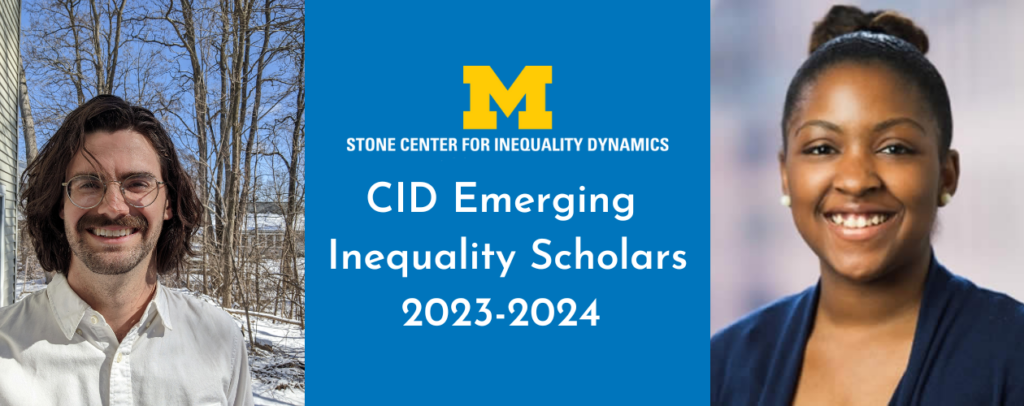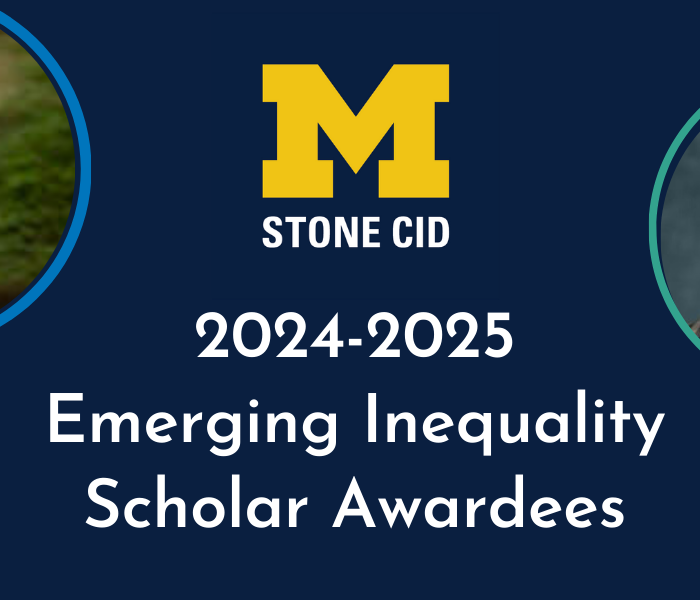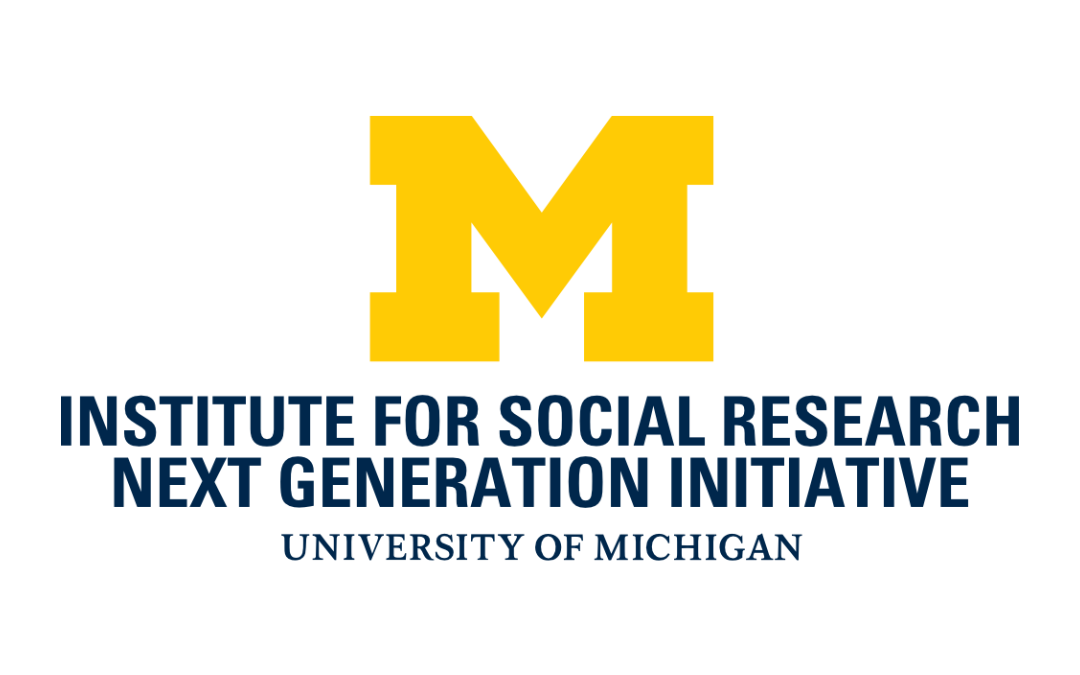
We’re pleased to announce our CID Emerging Inequality Scholars for the 2023-2024 academic year. Congratulations to Neil Christy, a doctoral student in Economics, and Jasmine Simington, a joint doctoral student in the departments of Sociology and Public Policy.
Neil studies how changes to income taxes since 1980 affect long-run wealth inequality in the U.S. Here is how he describes his project: “Using a macroeconomic model of savings decisions across heterogeneous households, I focus on the effect income tax changes have had on the optimal allocation of household wealth, and how tax-induced changes in household portfolio allocations have contributed to increased wealth inequality.”
Neil said he applied for the award for the opportunity to join scholars with diverse intellectual backgrounds who share a common research interest, social inequality. “I look forward to sharing perspectives on wealth inequality and advocating together for a more just and equitable society.”
Jasmine joined CID as a student affiliate in winter 2019. Her project examines the relationship between legal ownership status, wealth accumulation, and neighborhood racial composition using the case of heirs’ property (property inherited informally after the death of a loved one but not legally transferred to descendants using a will) in Charleston, SC through mixed-methods. “Heirs’ property owners cannot use their property for loan collateral, are restrained in making structural improvements, and oftentimes, are rejected from state benefits—like disaster recovery aid and home repair financial assistance—because of their ownership status,” Jasmine explained. “The experiences of heirs’ property owners have important insight for understanding wealth accumulation, more broadly. Inquiries into wealth inequality have not given sufficient attention to the ways that property laws define ownership and the impact of these definitions on the ability of owners to use their property to build wealth.”
“CID is an invaluable scholarly community for me to develop and refine these ideas because of its interdisciplinary breadth and culture of collaboration and generosity,” she said.
Learn more about CID’s Emerging Inequality Scholar Award.

